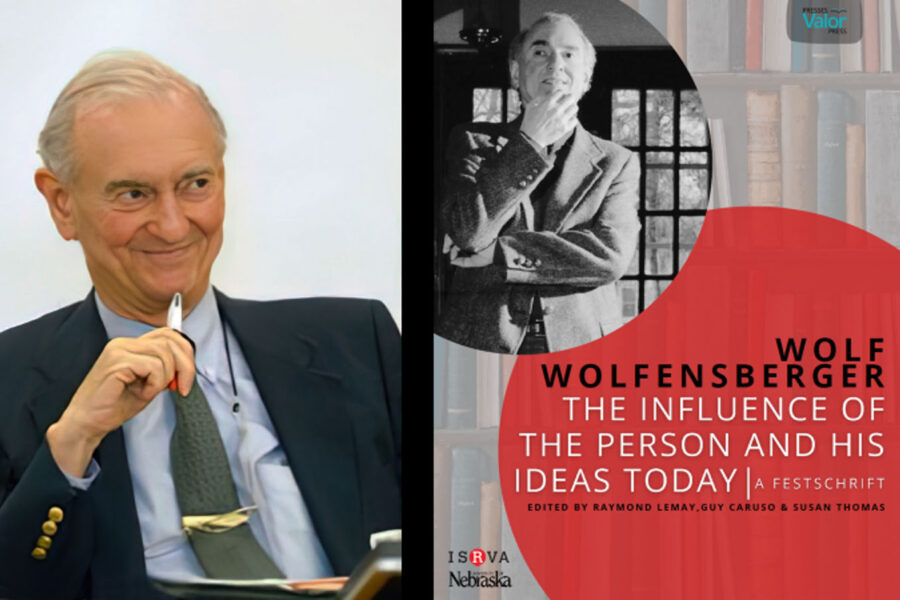The concept of the “festschrift” is perhaps better known in European academia, said Darby Kurtz, assistant professor and archivist and public historian at the McGoogan Health Sciences Library. It is a tribute to and celebration of an esteemed colleague.
But it is also more than that. A festschrift must result in a new published work, “a volume of writings by different authors presented as a tribute or memorial especially to a scholar,” according to Merriam-Webster.
It is fitting that the festschrift for one of the leading figures in the history of care of and advocacy for people with developmental disabilities recently was held at UNMC by the McGoogan Library.
Wolf Wolfensberger, PhD, who died in 2011, was that figure. He was a researcher at the former Nebraska Psychiatric Institute from 1964 to 1971 and a faculty member in the department of psychiatry, at what would become UNMC, during his time here. While in Omaha, he founded what have been called the country’s first community-based programs serving persons with developmental disabilities. He was a fierce advocate for “normalization” and later introduced the concept of social role valorization – that people thrive when holding valued social roles.
The entirety of his life’s research is housed at the McGoogan Library as the Wolfensberger Collection.
His festschrift, presented May 12-14 at UNMC, is 12 chapters encompassed in roughly 400 pages: “Wolf Wolfensberger: The Influence of the Person and His Ideas Today – A Festschrift,” edited by Raymond Lemay, Guy Caruso and Susan Thomas.
The festschrift’s attendees included Wolfensberger family members and colleagues from New York, Pennsylvania, Canada, the UK and India. “Outside of the book,” Kurtz said, “the biggest outcome was having this international group in a room together to discuss the future of the SRV movement that Wolf started and where they go from here.”
The presentations have been archived and will be available online soon. The published work now is part of the Wolfensberger Collection at the McGoogan Library.
In the three years leading up to the festschrift, the planning committee agreed that UNMC was the appropriate place to honor Dr. Wolfensberger, Kurtz said. The committee wanted to celebrate McGoogan Library’s role in caring for his collection and revisit the origins of Dr. Wolfensberger’s career at UNMC.
“Some of the chapter authors made the argument that this was Wolf’s first job out after he got his PhD, and this is where some of the initial ideas for normalization and social role valorization really took off for him. … It took off here. And then he went elsewhere and spread what he started here in Nebraska.”
The Nebraska community-based programs founded by Dr. Wolfensberger, ENCOR, continue today as DUET.

I had the honor of being a student of Wolf’s in the SWEAT program at NPI on the UNMC campus in the early 70″s (Summer Work Experience and Training). He and Dr. Frank Menolascino had a federal grant to train an entire generation of young clinicians and leaders to help develop community services within the State of Nebraska for persons with developmental disabilities. He was an incredibly passionate and inspirational voice and had a profound effect on his students and the normalization movement. Over a seven year period some 110 SWEAT graduates helped to build the group home and sheltered workshop services that made de-populating the Beatrice State Institution possible.
Congratulations on this impressive program achievement and also on managing the huge Wolfensberger collection donated to the library. I had the opportunity to visit the early work at the library several times and the size of the donation was staggering as was the diversity of his collection that we received.
Perhaps most important were the books he collected and added his own summaries he had typed and taped inside the covers.
I am excited to have access to the online version when it becomes available.